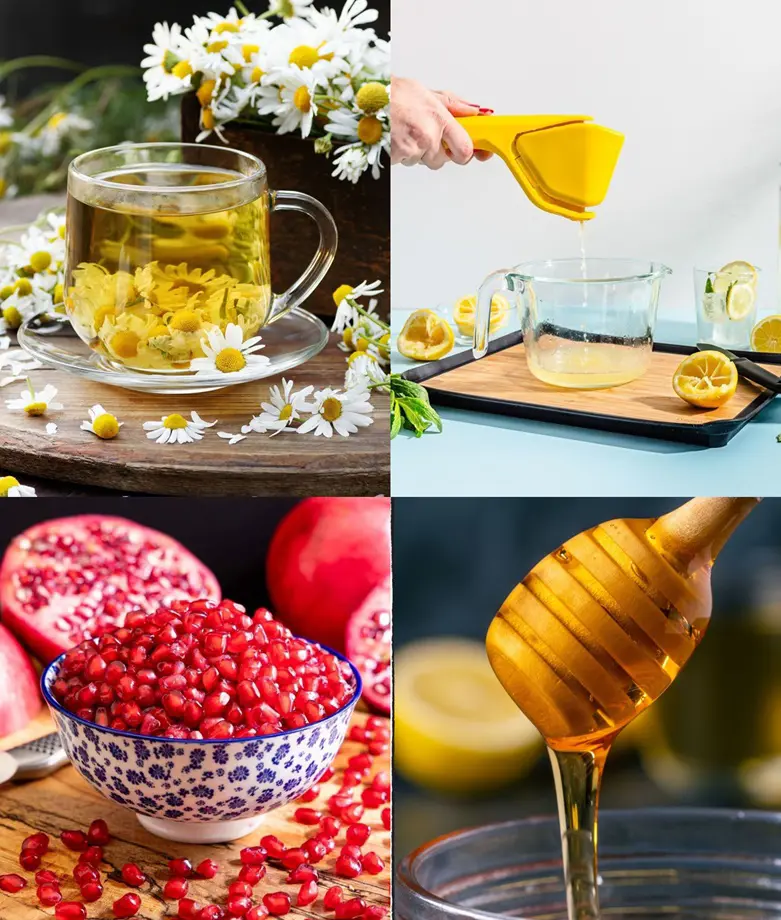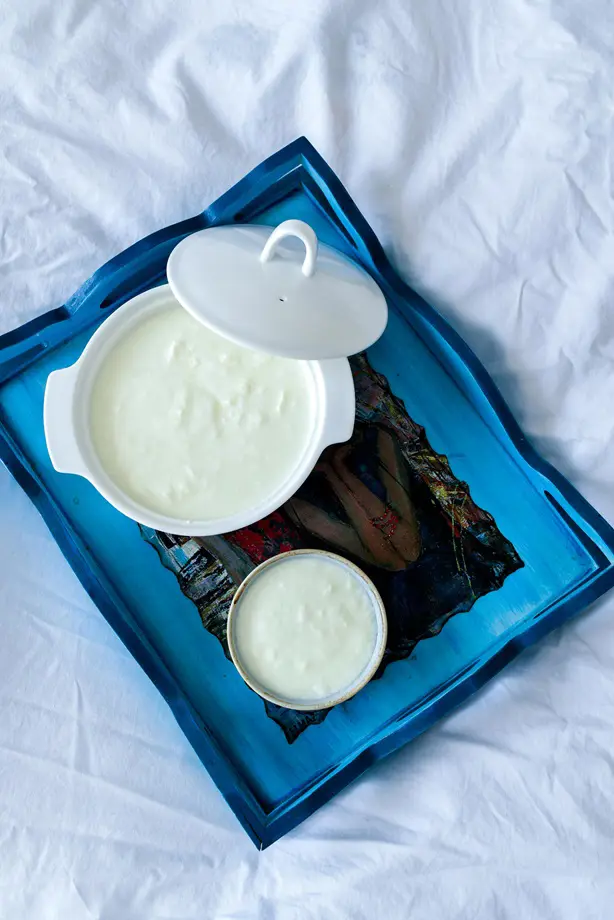Is Agave Good For You? Benefits, Uses And Risks
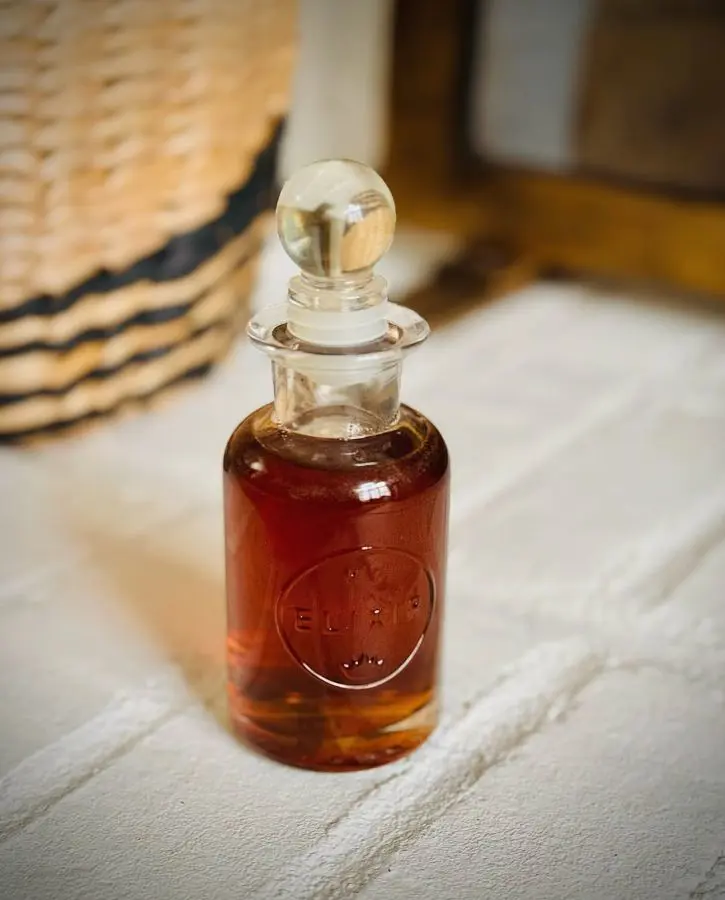
This post may contain affiliate links. If you make a purchase through links on our site, we may earn a commission.
When you stroll through the sweetener section at a supermarket or any other store, you probably notice bottles of golden agave nectar or agave's inulin with labels boasting claims like "natural" and "healthy". But is this viscous sweetener which comes from agave plants truly the nutritional champion that some people suggest?
Let's dive deep into everything you need to know about agave, from its ancient origins to its modern-day uses and health implications.
Understanding Agave
Agave is a juicy plant with a sweet pulp that belongs to the Asparagaceae family. It thrives best in dry areas and is most common and original to Mexico and other parts of the arid Americas. There are more than 200 species of agave; however, the most well-known species include blue agave (which is used in tequila, natural syrup, and natural sweeteners) and agave Americana (commonly used for decorative purposes and natural sweeteners).
Agave syrup, or nectar is extracted from the plant's core, referred to as the pina. The sap is juiced, filtered, and heated to create a sweet, thick liquid. Because of its high fructose levels, agave syrup is significantly sweeter than regular sugar, which means you can use less of it to achieve the desired sweetness.
Historical and Cultural Significance
Many years ago, agave became a popular sweetener and the native peoples of Mexico cherished the agave plant. The Aztecs regarded it sacred and used its sap not just as a sweetener, but also for medicinal purposes. They believed it could heal injuries and alleviate digestive problems. The plant's fiber was crafted into clothing and rope, while its spines were utilized as natural needles.
Nutritional Profile
All the parts of agave plants can be used such as for ornamental use, or some fun DIY, however, the major motive of planting agave is for its nectar or inulin. Let's see, in general nutritional profile of agave nectar (one tablespoon):
- 60 Calories
- 16 grams of Carbohydrates
- 16 grams of Sugar
- 0 grams of Fiber
- 0 grams of Protein
- 0 grams of Fat, Cholesterol, and Sodium
In addition to its nutritional profile, agave also holds the hint of important vitamins such as:
- Vitamin K
- Riboflavin (vitamin B2)
- Pyridoxine (vitamin B6)
- Folate (vitamin B9)
Note: Despite marking agave nectar as a healthy sweetener like honey or maple syrup, it provides minimal vitamins, minerals, or antioxidants because of the deep processing methods used in its production.
Agave Inulin
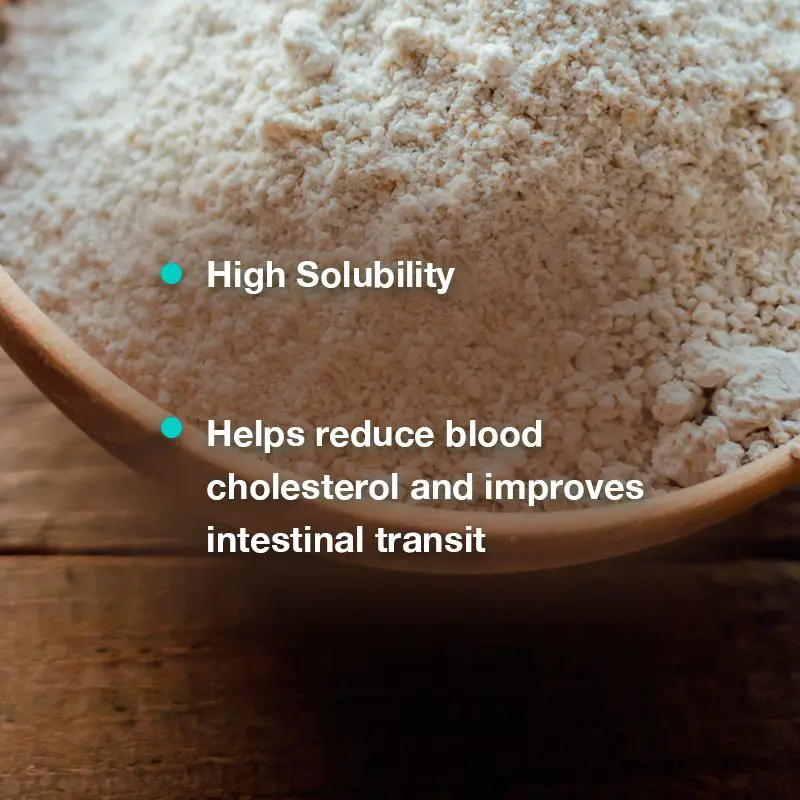
Similarly, one tablespoon of agave inulin contains:
- Calories: 45
- Fat: 0 grams
- Cholesterol: 0mg
- Dietary fiber: 12 grams
- Sodium: 0 mg
- Carbohydrates: 12 grams
- Sugar: 0 grams
- Protein: 0 grams
Potential Health Benefits Of Agave
1. Prevent Blood Sugar Spikes

If the individual is suffering from diabetes or prediabetes, agave may be their enticing option. One of the agave's main selling points is its Low Glycemic Index (GI), which ranges between 10 and 27. This means that agave causes a slower rise in blood sugar levels compared to regular sugar or honey.
2. Natural Sweetener
Agave syrup or nectar is one of the main reasons that people are attracted to its plant. This makes it an appealing choice for those avoiding artificial sweeteners. Its sweetness is deeper than regular sugar, and because of that you only need smaller quantities which possibly reduces overall calorie intake.
3. Prebiotic Fiber Content
Agave inulin is a type of soluble fiber found in the agave plant. It has prebiotic properties that may stimulate gut health by supporting gut bacteria. It can help control bowel movements, enhance feelings of fullness, and stabilize blood sugar levels.
4. Antioxidants Properties

Agave syrup or nectar contains antioxidants like flavanones, flavones, and tannins, which contribute to its potential health benefits. These antioxidants may:
- Reduce Cancer Risk
Antioxidants help defend cells from damage caused by free radicals, which helps in lowering the risk of cancer by maintaining cellular health.
- Lower Blood Pressure
By relaxing blood vessels and discouraging blood clotting, antioxidants in agave may contribute to enhanced cardiovascular health.
- Enhance Brain Health
They can reduce inflammation in the brain, which may improve memory and prevalent cognitive function.
5. Holds Saponins Compounds
Saponins are bioactive compounds that are also present in foods like legumes, sunflower seeds, spinach, and tea. These compounds may provide additional health benefits such as:
- Cancer Prevention
Saponins have been studied for their potential role in hindering the growth of cancer cells.
- Cholesterol Reduction
These compounds may help lower LDL (bad) cholesterol levels, which obviously promotes heart health.
- Blood Glucose Regulation
Saponins can help handle blood sugar levels, making agave syrup a potentially better option for those monitoring their glucose intake.
- Kidney Stone Prevention
This compound may reduce the risk of kidney stones by aiding in the breakdown of certain substances that contribute to their formation.
6. Contain Vitamins B and B6
Agave is a source of several B vitamins that are essential for transforming carbohydrates into energy your body can operate. These vitamins also help in moving nutrients around your system.
One key B vitamin found in agave is vitamin B6, which plays an important role in the breakdown of proteins and carbohydrates. It obliges in regulating homocysteine levels in the body, which may reduce the chances of heart disease and strokes. Furthermore, vitamin B6 might help soothe morning sickness in pregnant women. Another micronutrient present in agave is folate; it encourages the healthy development of a baby's nervous system during pregnancy.
7. Great for Your Hair and Skincare

Because of agave's hydrating power adding a few nectar or inulin into your homemade hair mask will be great for your healthy and shiny hair. Or, you can pour it into your daily conditioner, as it helps prevent dryness and strengthen your hair, so you don't have to worry about breakage or split ends. Best part? You can use it without worrying about your hair type because it is great for all hair types.
Furthermore, the hydrating properties of agave make it a common ingredient in skincare products. Many people believe it can soothe dry skin and promote a healthy glow. You can also pour nectar into your homemade lip balm, which will make your dry lips soft and moist.
8. Help in Wound Healing
You can use agave plant juice in your cuts or wounds because it holds steroidal, isoflavones, and coumarins. These properties can help boost the speed of recovering and healing wounds.
Things to Remember
However, the agave plant has these antioxidants and other health benefits, its nectar is a processed food, and some of these compounds may be terminated during this processing. So, please consume it in limitation.
According to the American Diabetes Association and the American Heart Association specifying sweeteners like agave nectar to 6 teaspoons per day for women and 9 teaspoons per day for men is necessary to be on the safer side.
In the case of agave inulin, consuming more than 20 grams can be risky and show uneasiness inside our bodies. Thus, don't overeat!
Uses Of Agave
There is no doubt about the versatility of agave, that's why it has been used for centuries in different cultures, mainly in Mexico. Different parts of agave plants can be utilized for food beverages, health supplements, and even industrial products. By considering this, we have outlined the uses of agave and how can we incorporate it into our lives.
1. Culinary Applications
- Agave Nectar: This is formed from the sap of the agave plant and is commonly used as a replacement for sugar and honey. It dissolved effortlessly in cold beverages, making it perfect for cocktails, smoothies, and iced drinks. They can also be applied in baking, where the sweetener is added to muffins, cakes, and other such pastries.
- Agave Inulin: Inulin, a prebiotic fiber derived from agave, is a great addition to smoothies, and baked items, or can be taken as a dietary supplement. It supports gut health by encouraging beneficial bacteria and can also assist in regulating blood sugar levels.
2. Beverages

- Alcohol Production: The core of the agave plant is fermented to produce alcoholic beverages like tequila and mezcal. Different species of agave are used for different types of spirits.
- Non-Alcoholic Drinks: Agave syrup can sweeten herbal teas, coffees, and other beverages without significantly raising blood sugar levels due to its low glycemic index.
3. Industrial Uses
- Biofuels: Agave can be processed into bioethanol, making it a potential source of renewable energy. Its high carbohydrate content allows for efficient fermentation into fuel.
- Fiber Products: The strong fibers from agave leaves are used to make ropes, mats, and other textiles. These fibers have been traditionally used by indigenous peoples for various practical applications.
4. Traditional Medicine
Historically, agave has been used to treat various ailments such as constipation and indigestion.
How to Use Agave
1. Incorporating Agave Nectar
- In cooking: Substitute agave nectar for sugar in recipes at a ratio of about 2/3 cup of agave for every cup of sugar, reducing other liquids slightly since agave is liquid.
- In beverages: Use it to sweeten cold drinks like iced tea or cocktails.
2. Using Agave Inulin
- In smoothies: Add a tablespoon of agave inulin powder to your morning smoothie for added fiber.
- In baking: Mix it into batters for cakes or muffins to enhance texture while boosting fiber content.
3. Exploring Other Parts of the Plant

- Edible parts: The roasted core (or pina) of the agave can be eaten directly or ground into patties.
- Fibers: Utilize agave fibers for crafting or household items. Or, you can make the rope of it.
Therefore, the versatility of agave makes it a valuable addition to both culinary practices and sustainable industries.
Health Risks And Concerns
Despite its perceived benefits, there are several risks associated with agave consumption:
1. High Fructose Content
It's important to note that agave syrup, nectar, or inulin contains roughly 80% fructose. Although fructose has a lower glycemic index compared to glucose, consuming it in excess can result in various health problems. A higher level of fructose has been associated with insulin resistance, fatty liver disease, obesity, and elevated triglyceride levels.
2. Liver Health Concerns
The liver metabolizes fructose differently than glucose; excessive fructose can overwhelm the liver's capacity to process it effectively. This can lead to fat accumulation in the liver (non-alcoholic fatty liver disease) and other metabolic disorders.
3. Gastrointestinal Issues

Some individuals may experience gastrointestinal discomfort when consuming agave inulin due to its fiber content. Common side effects include gas and bloating, particularly if intake is increased too quickly.
4. Misleading Health Claims
While agave is often taken as a healthier alternative to sugar due to its low glycemic index, experts caution that this does not necessarily make it a healthy choice overall. The high fructose content poses significant health risks, such as Obesity, Type 2 diabetes, Hypertension, and many more that should not be overlooked.
5. Minimal Nutritional Value
Despite marketing claims about its "natural" status, processed agave nectar offers little in terms of nutritional benefits. The heating and filtering process strips away most of the beneficial compounds that might be present in the raw plant.
6. Dental Health Concerns

Like any sugar, agave nectar can contribute to tooth decay. Its sticky consistency means it can adhere to teeth longer than granulated sugar, potentially increasing the risk of cavities.
7. Impact on Weight Management
While agave nectar might not spike blood sugar levels as dramatically as regular sugar, it still contains the same number of calories. In fact, because it's sweeter than sugar, people might unknowingly use more, leading to increased caloric intake.
How To Use Agave Safely?
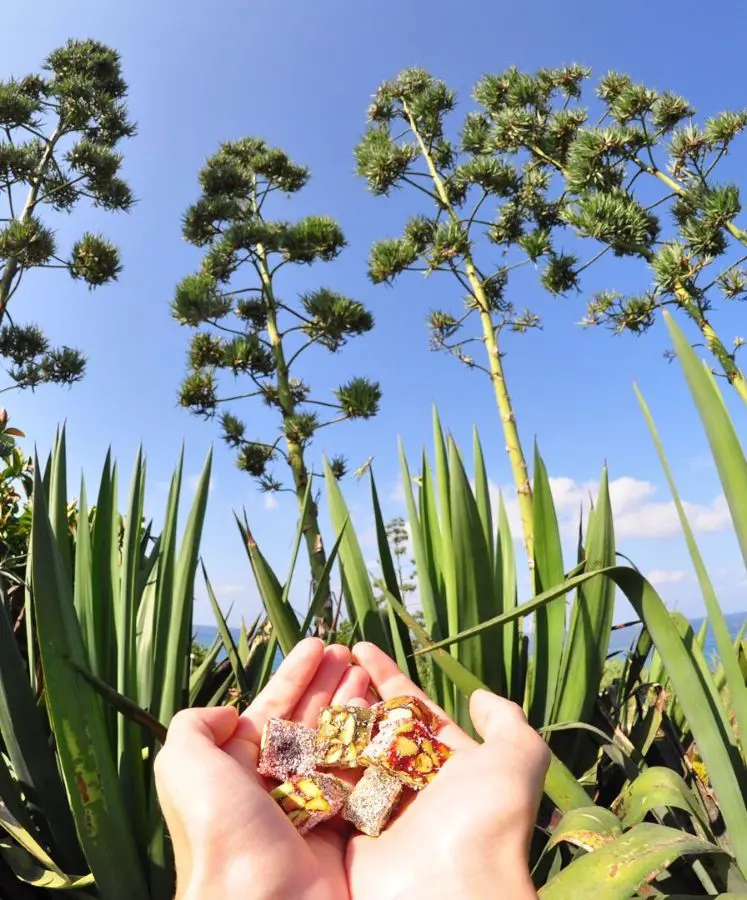
If you choose to include agave nectar or inulin in your diet, here are some mindful ways to use it:
1. Moderate Consumption
Remember that even though it's marked as natural, it's still a form of added sugar. The American Heart Association recommends limiting added sugars to no more than 6-9 teaspoons per day.
2. Strategic Uses
Save agave nectar for applications where its unique properties shine:
- In cold drinks where regular sugar wouldn't dissolve well
- In recipes requiring liquid sweeteners
- When a neutral-flavored sweetener is desired
- In vegan baking as a honey substitute
3. Proper Storage
To maintain its quality:
- Store in a cool, dark place
- Keep the bottle tightly sealed
- Use within 6-12 months of opening
- Watch for any changes in color or consistency
Alternatives To Agave
If you are looking for healthier sweetening options, consider these alternatives:
- Raw honey (if not vegan)
- Pure maple syrup
- Date syrup
- Stevia (for zero-calorie option)
- Monk fruit sweetener
Recent posts
Lifestyle
Lifestyle
20+ At Home Remedies For Nausea
Nausea can affect any of us, any time of the day. Though nausea has unexpected timing, fortunately, there are several natural and simple home remedies that are effective in healing the discomfort. From foods that help calm the stomach to breathing te...
Lifestyle
How to Get Rid of Neck Pain: 10 Home Remedies To Fix Stiff Neck
Neck pain is a common issue of today, affecting more than one-third population of the US. The common causes that often lead to stiff neck include sleeping in an awkward position that involves straining of the neck, sitting in a bad posture for long p...
Lifestyle
10 Home Remedies For Loose Motion and Diarrhea
When in tough times, due to issues like loose motion or diarrhea, it would be reassuring for you to know that there are remedies, that also in your own pantry! Whatever the cause may be, be it an infection, food intolerance, or stress, these ingredie...
Lifestyle
How To Eat A Star Fruit
Star fruit is a tropical fruit known for its unique star-like appearance. The fruit can be enjoyed simply, on its own or by adding it on recipes where its extra burst of color and sweet-tart taste can blend well with other ingredients. Whichever way ...
Lifestyle
Is Yogurt Good For You?
Yogurt is a dairy product, a nutrient-packed food. It is often hailed as a health food and there are good reasons for this. If we look into the nutrients present in yogurt; it has numerous of them essential for functioning of our body. In this articl...
Lifestyle
Is Vegan Diet Actually Healthy?
A vegan diet is considered healthy but not most of the time. As all vegan foods have many beneficial nutrients, they also lack some which often sparks the debate. Without animal products, a vegan diet can be believed to have significant health benefi...


